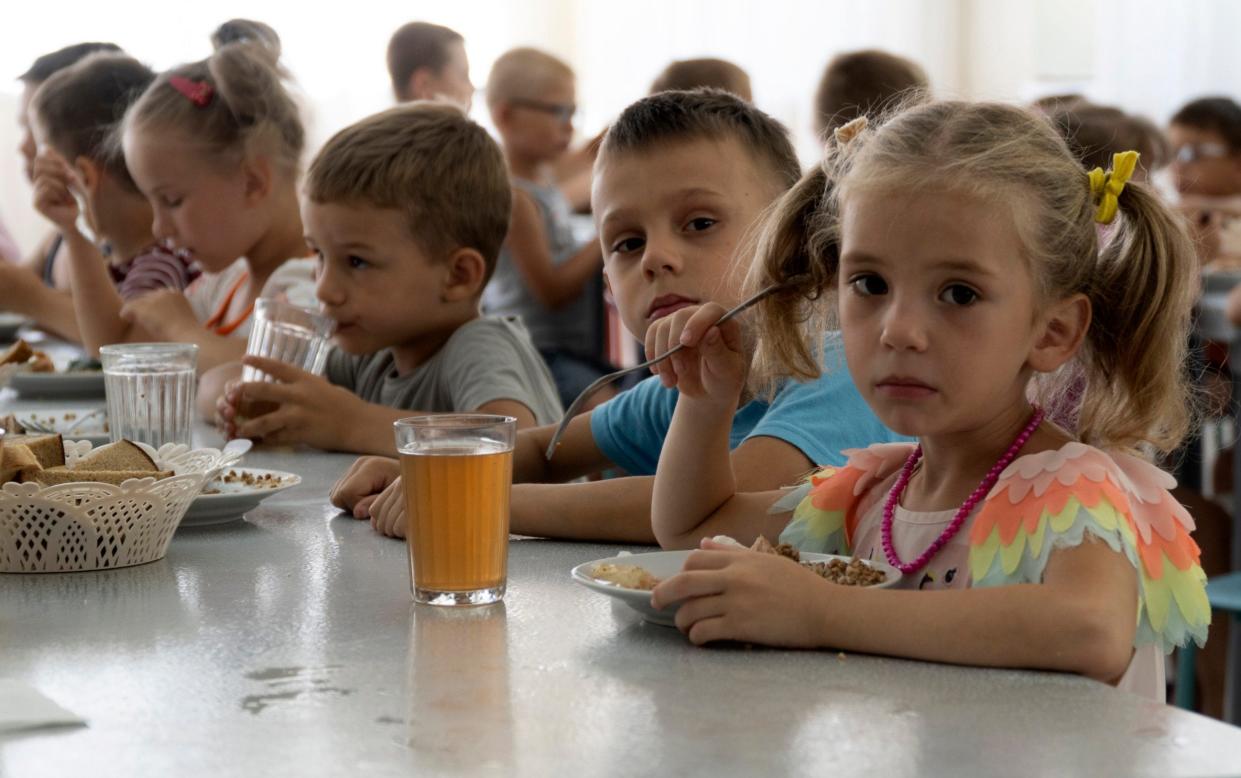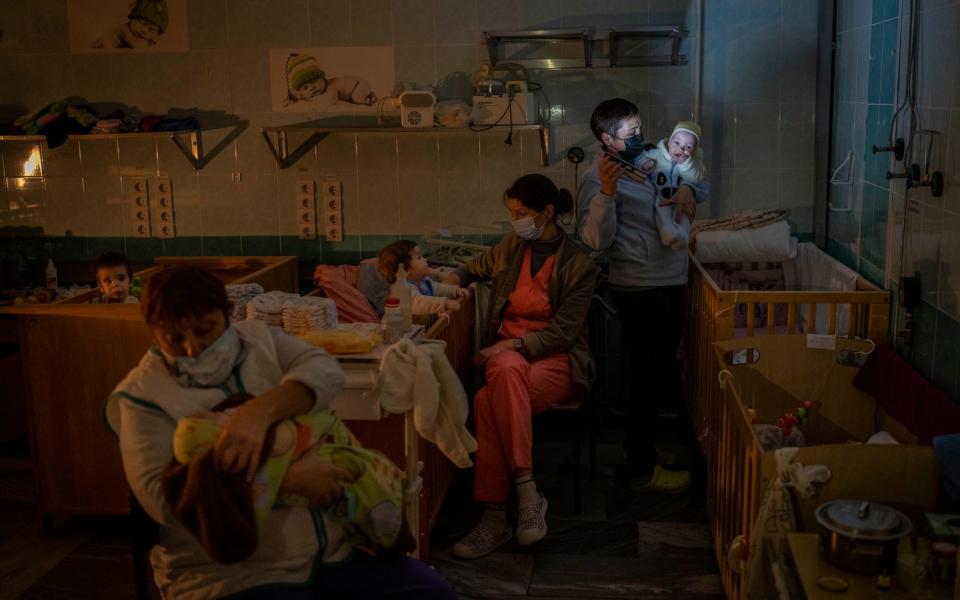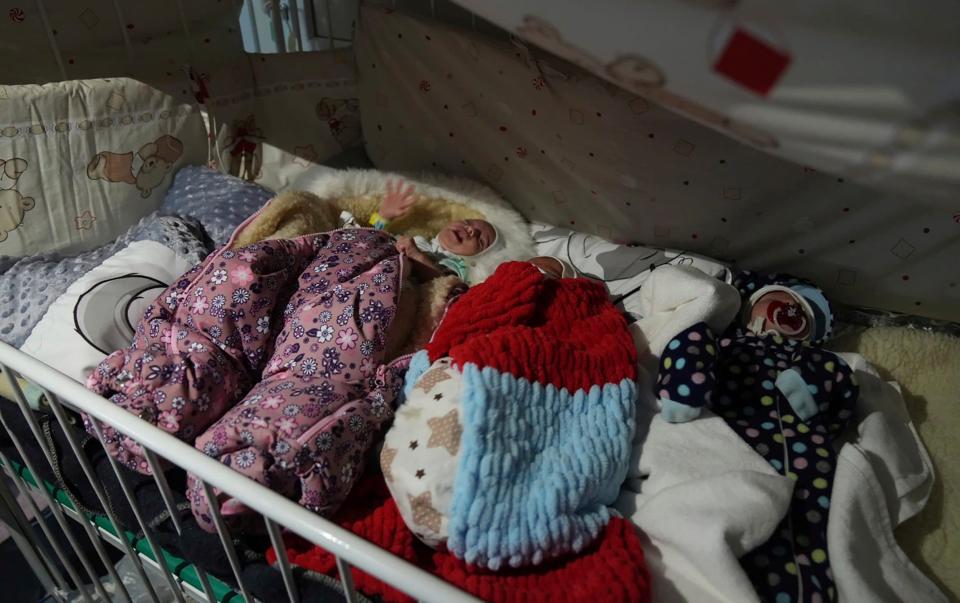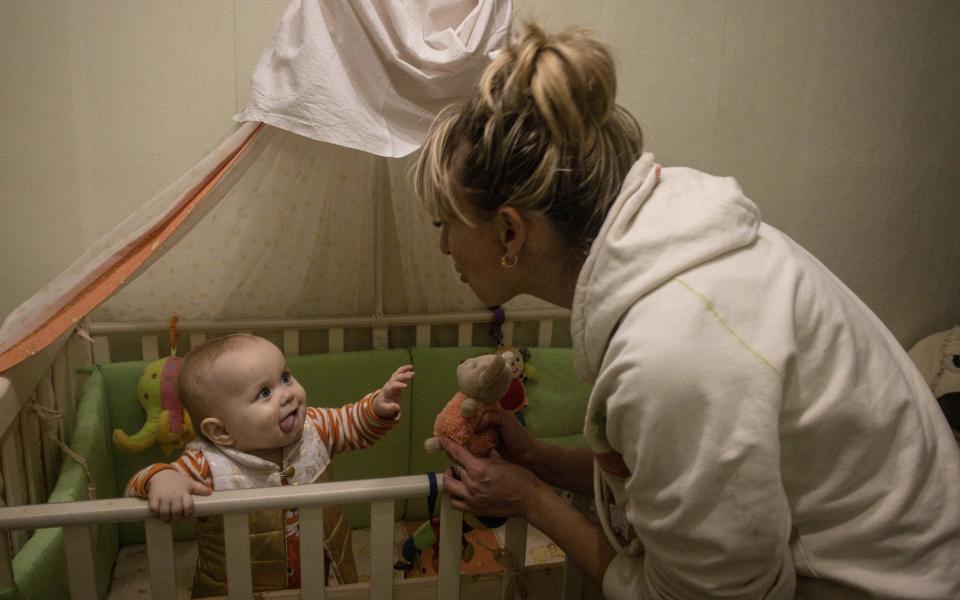How Moscow grabs Ukrainian children and makes them Russian

Russia’s open effort to adopt Ukrainian children and bring them up as Russian has been underway for some time in one of the most explosive issues of the war.
Thousands of children have been found in the basements of war-torn cities like Mariupol and at orphanages in the Russian-backed separatist territories of Donbas. They include those whose parents were killed by Russian shelling as well as others in institutions or with foster families, known as “children of the state”.
Russia claims that these children don’t have parents or guardians to look after them, or that they can’t be reached. But an investigation found that officials have deported Ukrainian children to Russia or Russian-held territories without consent, lied to them that they weren’t wanted by their parents, used them for propaganda, and given them Russian families and citizenship.
The investigation, by the Associated Press, is the most extensive to date on the grab of Ukrainian children, and the first to follow the process all the way to those already growing up in Russia. It drew from dozens of interviews with parents, children and officials in both Ukraine and Russia; emails and letters; Russian documents and Russian state media.
Whether or not they have parents, raising the children of war in another country or culture can be a marker of genocide, an attempt to erase the very identity of an enemy nation. Prosecutors say it also can be tied directly to Russian president Vladimir Putin, who has explicitly supported the adoptions.

“It’s not something that happens spur of the moment on the battlefield,” said Stephen Rapp, a former US Ambassador-at-Large for War Crimes Issues who is advising Ukraine on prosecutions. “And so your ability to attribute responsibility to the highest level is much greater here.”
Even where parents are dead, Mr Rapp said, their children must be sheltered, fostered or adopted in Ukraine rather than deported to Russia.
Russian law prohibits the adoption of foreign children without consent of the home country, which Ukraine has not given. But in May, Putin signed a decree making it easier for Russia to adopt and give citizenship to Ukrainian children without parental care - and harder for Ukraine and surviving relatives to win them back.
Russia also has prepared a register of suitable Russian families for Ukrainian children and pays them for each child who gets citizenship - up to $1,000 for those with disabilities. It holds summer camps for Ukrainian orphans, offers “patriotic education” classes and even runs a hotline to pair Russian families with children from Donbas.
“It is absolutely a terrible story,” said Petro Andryushchenko, an adviser to the Mariupol mayor, who claims hundreds of children were taken from that city alone. “We don’t know if our children have an official parent or (stepparents) or something else because they are forcibly disappeared by Russian troops.”

The picture is complicated by the fact that many children in Ukraine’s so-called orphanages are not orphans at all. Ukraine’s government acknowledged to the UN before the war that most children of the state “are not orphans, have no serious illness or disease and are in an institution because their families are in difficult circumstances”.
Nevertheless, Russia portrays its adoption of Ukrainian children as an act of generosity that gives new homes and medical resources to helpless minors. Russian state media shows local officials hugging and kissing them and handing them Russian passports.
It’s very hard to pin down the exact number of Ukrainian children deported to Russia - Ukrainian officials claimed the figure was nearly 8,000 by autumn last year. Moscow hasn’t given an overall number, but officials regularly announce the arrival of Ukrainian orphans in Russian military planes.
In March, Maria Lvova-Belova, Russian children’s rights ombudswoman, said more than 1,000 children from Ukraine were in Russia. Over the summer, she said 120 Russian families had applied for guardianship, and more than 130 Ukrainian children had received Russian citizenship. Many more have come since, including a batch of 234 in early October.
Lvova-Belova has said these children need Russia’s help to overcome trauma that has left them sleeping badly, crying at night and drawing basements and bomb shelters. She acknowledged that at first, a group of 30 children brought to Russia from the basements of Mariupol defiantly sang the Ukrainian national anthem and shouted, “Glory to Ukraine!” But now, she said, their criticism has been “transformed into a love for Russia”, and she herself has taken one in, a teenager.
“Today he received a passport of a citizen of the Russian Federation and does not let go of it!” she posted on Telegram on Sept 21, along with a photo. “(He) was waiting for this day in our family more than anyone else.”
Lvova-Belova has been sanctioned by the US, Europe, the UK, Canada and Australia. Her office referred the AP to her reply in a state-owned news agency that Russia was “helping children to preserve their right to live under a peaceful sky and be happy”.

In August, a post from a senior official at the Moscow Department of Labour and Social Protection thanking the Russian foster families declared: “Our Children...Now they are ours.”
In 2014, after Russia annexed the Crimean Peninsula, more than 80 children from Luhansk were stopped at checkpoints and abducted. Ukraine sued, and the European Court of Human Rights found the children were taken into Russia “without medical support or the necessary paperwork”. The children were returned to Ukraine before a final decision.
Kateryna Rashevska, a human rights defender, said she knows of about 30 Ukrainian children from Crimea adopted by Russians under a programme known as Train of Hope. Now, she said, some of those children might well be Russian soldiers. Since 2015, the Young Army Cadets national movement has trained youth in Crimea and Russia for potential recruitment into the military.
This time around, at least 96 children have been returned to Ukraine since March after negotiations. But Ukrainian officials have tracked down the identities of thousands more in Russia, and the names of many others simply aren’t published.
“We cannot ask the Russian Federation to return the children because we don’t know who they should return,” said Ms Rashevska, with the Ukrainian organisation Regional Central for Human Rights.

Russia justifies the deportation of children by saying it has annexed four territories in Ukraine, but the UN and the rest of the world called the move in late September a sham. The governor of one of those territories, Serhiy Haidai of Luhansk, has accused Russian officials of drawing up documents that deprive Ukrainian parents of their rights. He too fears that Ukrainian children will be enlisted in the Russian military.
Other officials in occupied territories loyal to Moscow have a more benign view of what Russia is doing. Olga Volkova, who heads an institution for children in Donetsk, had 225 kids evacuated to an area near the Russian seaside city of Taganrog, and 10 were taken in by Russian families in April. After the Donetsk People’s Republic and Russian officials make a list of suitable candidates, her boarding school secures citizenship for them and sends them to new families in Russia.
If there are Ukrainian relatives, they can stay in touch, call and perhaps eventually meet, Volkova said. In the meantime, while the war is ongoing, she noted, the children now still have families of a sort.
“Everyone wants to have a mother, you see?” Volkova said.
For some Russian families, taking in Ukrainian orphans isn’t a crime. It’s a gift.
One professional foster mother was called in by the Moscow social services to “come and look” at the eastern Ukrainian kids who had recently arrived. She already had six Russian foster kids under her roof, some with disabilities. She took in three more from Mariupol.
“We still have love untapped,” she said. “There are children who need to be given affection, love, care, family, mom and dad. If we can give it, why not?”
She said she had reached out to the children’s Ukrainian foster mother, who didn’t mind the arrangement.

The AP couldn’t reach the Ukrainian mother. But the children didn’t hide their resentment of her, described life with her as constrained and made no effort to call her.
They said she had dropped them off at a bunker in Mariupol. The Russian military got them out, and they had to choose between adoption by a Russian family and life in a Russian orphanage.
After a guardianship trial in now-occupied Mariupol, the Russian mother has custody of the children. They have become Russian citizens and call her mom, she said.
“We don’t talk about the war,” she said. “Politics remains politics. This is not our business.”
At her house with a courtyard and inflatable swimming pool, the children said they felt welcome and accepted. The 15-year-old girl is eager to start a new life in Russia - but in part because returning to her old one is impossible. Her school was bombed, one of her classmates died and almost everyone has left.
“Trying to start on a new page is never bad,” she said. “Why not?”
Her 17-year-old foster brother interrupted. Two of his friends had died also, he said.
He thinks starting his life anew will give him experience and he looks forward to seeing Russia. But he is also worried about not being accepted as a Ukrainian. He will give it a go for a decade to try and make a fortune, and then return to Ukraine.
“My friends are there, they can support me,” he said. “I was born there… I know everything there, I’m just used to it.”
An edited version of this story was first published by the Associated Press

